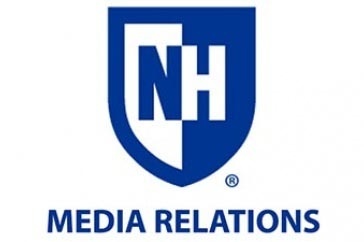Research Finds Pronoun Use Not Only Shaped By Language But Also Beliefs

DURHAM, N.H. — Pronouns like ”he” and “she” are at the center of much debate as society tries to shift to using more gender-inclusive pronouns like ‘they’ — especially when referring to those with identities that do not fit with traditional pronouns. Research at the University of New Hampshire looked at the use of pronouns in two different languages — including one where all pronouns are identity neutral — and found that people’s use of pronouns reflects not just the language they speak but also their ideologies.
“Most people want to be thoughtful and inclusive and say they are open to using pronouns like “they” and “them” but in reality it can often be hard for some to make the shift,” said April Bailey, assistant professor of psychology and lead author. “We wanted take a closer look at societal attitudes about pronoun use and see if it was connected to the language they speak and their beliefs about identity.”
In their research, published in the Journal of Experimental Psychology: General, the researchers asked a series of questions about pronouns to participants from two languages, English and Turkish, that have very different pronoun systems. English pronouns commonly denote binary gender, for example “he” for men and “she” for women. In the Turkish language, pronouns are identity-neutral, for example, “o” can refer to “he”, “she” or “it” depending on the noun it refers to. There are not any specific masculine or feminine pronouns.
In a series of three studies, participants were asked to evaluate different types of real and hypothetical pronouns, including binary gender pronouns, race pronouns and identity-neutral pronouns. The researchers found that both groups generally endorsed the pronouns that were most familiar and common in their respective languages. English-speaking participants mostly endorsed binary gender pronouns, like “he” and “she”. Turkish-speaking participants mostly endorsed identity-neutral pronouns, like “o”.
The researchers also found that participants’ answers reflected specific ideologies so they looked at the social-cognitive process — how people process, store and apply information — to see how that affects the reasoning around pronouns. Among both English and Turkish speaking participants, those who were high in essentialist ideologies about identity — assuming people are inherently and permanently either male or female—also endorsed binary gender pronouns and race pronouns more, showing that ideological beliefs can influence beliefs about pronouns.
“Similar to other function words, like conjunctions, pronouns are some of the most frequently used words in any language,” said Bailey. “However, unlike those other words, pronouns can encode social information that may shape a person’s beliefs and how they reason about their social world.”
The researchers say there are valid debates on both sides of the issues — why gender pronouns are helpful and also how they can alienate some non-binary individuals. For instance, using “she” can make women more visible when referring to a more male-dominated field. However, those who point to drawbacks feel binary gender pronouns exclude non-binary individuals. They say language can shape how people think and despite recent trends toward using “they” and “them” more often, traditional gender pronouns, like “he” and “she”, are still used more often. The researchers hope their work will shine a light on why many English speakers struggle with using gender neutral pronouns like “they” and ”them” and contribute to theories on how people reason about language and ultimately help inform policy-relevant questions about whether and how to implement language changes for social purposes.
Co-authors on the study include Robin Dembroff, Yale University; Daniel Wodak, University of Pennsylvania; Elif G. Ikizer, University of Wisconsin-Green Bay; and, Andrei Cimpian, New York University.
The University of New Hampshire inspires innovation and transforms lives in our state, nation and world. More than 16,000 students from 49 states and 82 countries engage with an award-winning faculty in top-ranked programs in business, engineering, law, health and human services, liberal arts and the sciences across more than 200 programs of study. A Carnegie Classification R1 institution, UNH partners with NASA, NOAA, NSF, and NIH, and received over $210 million in competitive external funding in FY23 to further explore and define the frontiers of land, sea and space.
Latest News
-
January 12, 2026
-
December 4, 2025
-
November 26, 2025
-
November 6, 2025
-
November 5, 2025













































